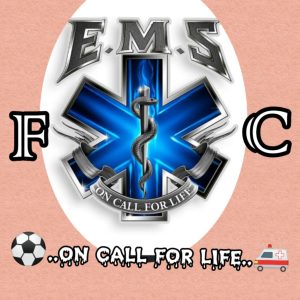Menta Health
August 25, 2023 | 2:55 pmMental health is a critical concern in the field of Emergency Medical Services (EMS) due to the unique challenges and stressors that EMS professionals face in their roles. EMS providers often encounter high-pressure situations, trauma, and emotional demands that can take a toll on their mental well-being. Here are some important considerations and strategies for addressing mental health in the context of EMS:
- Awareness and Education: Raise awareness about the mental health challenges specific to EMS. Provide education to EMS personnel, supervisors, and leadership about the signs of mental health issues and the importance of seeking help.
- Normalize Seeking Help: Reduce the stigma associated with seeking mental health support by promoting a culture where seeking help is seen as a sign of strength rather than weakness.
- Trauma-Informed Care: Provide training on trauma-informed care to help EMS providers better understand the psychological impact of their work and develop strategies for self-care and coping.
- Peer Support Programs: Establish peer support programs that allow EMS professionals to connect with colleagues who have experienced similar challenges. Peer support can offer a safe space for sharing experiences and seeking advice.
- Mental Health Resources: Ensure that EMS personnel have access to mental health resources, such as counseling services, support groups, and employee assistance programs.
- Critical Incident Stress Management (CISM): Implement CISM programs to provide immediate support and interventions for EMS providers after traumatic incidents. CISM helps mitigate the potential long-term effects of critical incidents.
- Work-Life Balance: Promote work-life balance by implementing appropriate scheduling, rest periods, and time-off policies to prevent burnout.
- Wellness Initiatives: Organize wellness programs that include physical activity, stress management workshops, mindfulness sessions, and activities that promote emotional well-being.
- Mental Health Training: Provide EMS providers with training on stress management techniques, emotional resilience, and coping strategies to help them navigate the challenges of their profession.
- Mental Health Screening: Consider implementing regular mental health screenings for EMS personnel to identify potential issues early and provide necessary support.
- Leadership Support: Foster a supportive leadership culture that values and prioritizes the mental health of EMS personnel. Encourage supervisors to be approachable and attentive to their teams’ well-being.
- Employee Feedback: Engage EMS personnel in discussions about their well-being and the challenges they face. Seek their input on initiatives aimed at improving mental health support.
- Continued Professional Development: Offer opportunities for ongoing education and professional development, enabling EMS providers to stay updated with best practices and coping strategies.
- Resilience Building: Provide training that focuses on building emotional resilience and adapting to the emotional demands of the job.
- Open Communication: Create a culture of open communication where EMS personnel can discuss their mental health concerns without fear of judgment or negative consequences.
Promoting mental health in Emergency Medical Services is crucial for the well-being of EMS providers and the quality of care they provide to patients. By addressing the unique challenges of the profession and providing comprehensive support, EMS organizations can create an environment that fosters mental well-being and resilience.
Joseph Karanja and Samuel Adio are Emergency Medical Technicians who have taken a step further to ensure a safe space for emergency responders. They founded the great EMS football club in Feb 2023. They conceived the idea to relieve stress by engaging other EMS members to fight post-traumatic stress disorder (PTSD) through football. They realized that most EMS personnel try to fight work related stress through alcohol or other unhealthy ways hence the formation of a football club for all responders. Football is a game in which at least 80% of people can play and excel in. Initially they experienced some challenges in uniform purchase but through individual contribution, they attained the first set of jerseys. So far, they have managed to play one match EMS FC vs MEDICS FC that ended in a 4-4 tie.
They then take 10 mins after every match for public sensitization on first aid awareness
The next match is scheduled for September.







